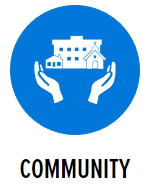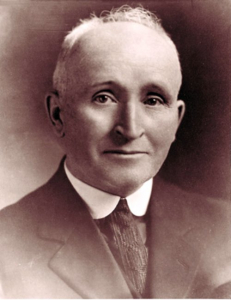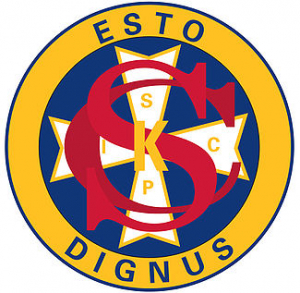Community Pillar
Columbian Squires
The following are excerpts taken from The Unofficial History of the Knights of Columbus in Ontario (1900-62) Volume one by State Deputy Bruce Poulin. We hope you enjoy reading part of our story.

Overview. Since 1930, the Columbian Squires program in Ontario has been mentoring Catholic boys between the ages of 10 and 18 on leadership, spiritual and moral guidance through a wide range of activities. These include volunteering at soup kitchens, raising funds for children’s hospitals, praying for religious vocations, cleaning up city parks, spiritual activities, going on camping trips, basketball free throw, the soccer challenge, altar serving, and other activities directed towards youth to name but a few.
Communities and Parishes, for their part, benefit from having Squires in their midst, as they raise money for charity through different methods, such as raffles, benefit breakfasts, car washes, and sporting tournaments.
The loss of Canadian men on the battlefields of the Great War (1914-18) compounded by the Spanish flu (1918-20) meant that many boys were growing up fatherless. This caused considerable stress on Catholic families because the father’s role is critical in the natural family as witnessed by the high cost to children, mothers, and society when the father is absent.
The Catholic fraternal Order of the Knights of Columbus has always recognized the natural family as the optimal construct on which Western civilization depends. So, it made sense for members of the Order to help raise fatherless Catholic boys. Nobody understood the problem of young boys from the Greatest Generation cohort growing up fatherless than Brother Edward Patrick “Barnabas” McDonald (1865 – 1929).
His speech usually started with the following assertion: Children spend roughly 1,000 hours in school out of a total of 4,000 hours a year that they are awake. He would then ask the members of the Order: How the other 3,000 hours a year were spent? He went on to suggest that many boys, especially underprivileged boys, were on the streets during this free time when they should be home. The only real effort to address this issue, Barnabas would say, was organizations like the Knights of Columbus and their Columbian Squires program.
Brother Edward Patrick “Barnabas” McDonald (1865 – 1929)

Brother “Barnabas” McDonald (1865–1929) Photo: Wikipedia
Born on July 20, 1865, in Ogdensburg, New York, Barnabas became a Christian brother on November 1, 1885. As a vocational recruiter, (1890 – 1901), he witnessed firsthand Catholic boys being placed in orphanages, with many being exploited as cheap labor on farms, while others ran away to the city. Motivated by these boys’ plight, Barnabas founded the St. Philip’s Home for Urban Working Boys.
In 1917, Barnabas was sent to the Christian Brothers Training College in Aurora, where he worked as a tailor. As was the practice in those days, to differentiate himself from the priesthood and lay people, he adopted a new name at the end of his novitiate, henceforth calling himself Barnabas. In 1921, the Most Reverend Neil McNeil, Archbishop of Toronto, called upon Brother Barnabas to help organize various charitable works in his diocese. As a result, he was appointed director of Catholic Charities in Toronto. He also joined Council #1388 in Toronto.
The archbishop’s request for Brother Barnabas’ services coincided with the Holy See and the U.S. Bishop’s request for a Catholic youth organization to be established, one that would organize leisure and recreational activities for boys under the sponsorship of the Knights of Columbus. It was important to keep the spirit of God alive and present in these young boys’ minds.
Supreme Council hired Brother Barnabas in the fall of 1923 to be the executive officer of the Knights of Columbus Boy Life Bureau. His next two years were spent studying the aims and purposes of the organization. In February 1924, Brother Barnabas visited several Knights of Columbus Councils in Ontario to discuss and promote “Boys Work.”
Local councils in Ontario were so impressed with Brother Barnabas’ work that they made donations toward the education of several Christian Brothers. Ontario Councils also made donations toward the St John’s Industrial School in Uxbridge in support of the Archbishop of Toronto, John Walsh’s initiative.
Ontario Columbian Squires – 1930
In 1929, a group of Knights of Columbus from Council #1453 in Windsor, interested in the training and development of the future citizens from the local area, called together a group of boys and explained to them what the Columbia Squires was all about. Without exception, the boys supported the establishment of a Columbian Squires circle.
On February 2, 1930, the Dean Laurendeau Circle #57 of Windsor, under the mentorship of Council #1453 also in Windsor, was established. Named after the Very Rev. Dean F. J. Laurendeau of Windsor, who had been pastor of the largest Roman Catholic parish in Ontario. The growth of the Squires had not been quick because the sponsoring council needed at least two of its members to have been trained at a Boyology Institute. Even during those years, only trained leaders could have jurisdiction over the recreation of young boys. The Boylogy training included a 36-hour intensive course on child guidance, which was specifically developed by Brother Barnabas to train local leaders on how to supervise their own squires’ circles. Its purpose, as described in The Windsor Star was, “…to provide training in the principles and techniques of organizing and operating successful youth programs.”

Columbia Squires Circle emblem
A typical Columbia Squires Circle consists of 30 boys and 6 Knights of Columbus counselors who work and continue to work on an ongoing basis with these youth. Each Circle also includes a clergy member, called a Father Prior, who is responsible for the spiritual needs of the boys. The officers in the Circle are the Chief Squire, the Deputy Chief Squire, Notary, Bursary, Marshal, Sentry, Arm, and Pole Captains. These officials are installed yearly and all meetings are conducted by strict parliamentary rules. Jackets and ties are required at business meetings as a sign of respect and a means of honoring the Knights of Columbus.
